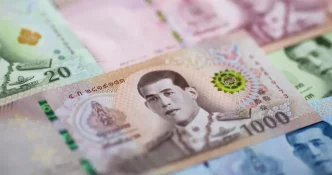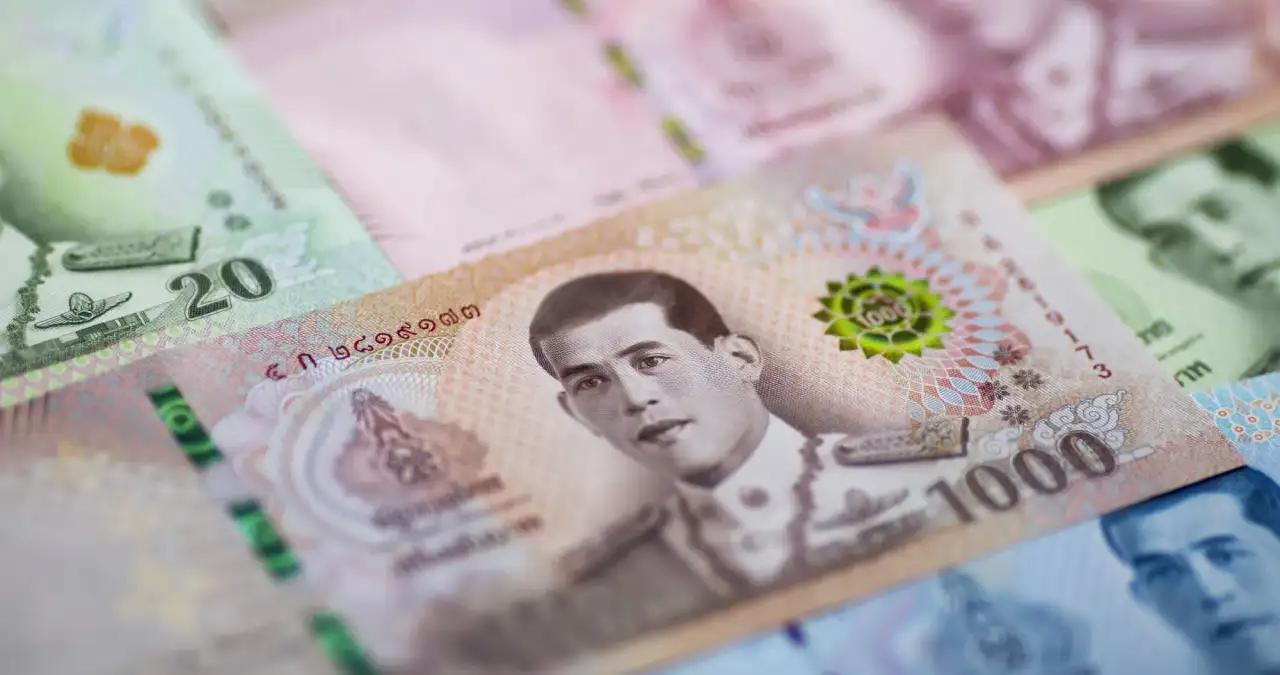Thailand’s financial landscape is poised for a significant transition as the government prepares to appoint a new Governor for the Bank of Thailand (BOT), with the pressing issue of the Thai baht’s unusually strong performance at the forefront of the agenda. Deputy Prime Minister and Finance Minister Pichai Chunhavajira has expressed a strong commitment to working closely with the incoming central bank head to address what he describes as the currency’s “abnormally strong” value, a situation that could have far-reaching implications for the country’s economy.
A Collaborative Approach to Currency Concerns
The Thai baht has been a point of contention in recent years, with its strength often defying typical market dynamics. Pichai has highlighted the need for a shared understanding between the Finance Ministry and the BOT to ensure the currency’s value aligns more closely with market forces. While stopping short of advocating for direct intervention, the Finance Minister emphasized that a cooperative relationship with the new Governor could help stabilize the baht without resorting to heavy-handed measures.
The baht’s strength, which Pichai noted possesses “unique characteristics” within Thailand, has raised concerns among policymakers and exporters alike. A strong currency can make Thai goods more expensive on the global market, potentially harming the competitiveness of key industries such as tourism, manufacturing, and agriculture, which are vital to the nation’s economic health. At the time of reporting, the exchange rate stood at approximately 35.5 Thai Baht to the US dollar, though fluctuations remain a constant challenge for economic planners.
The Selection Process: A Race Against Time
Pichai revealed that the selection process for the new BOT Governor is being fast-tracked, though he cautioned that a final name might not be submitted to the Cabinet immediately due to ongoing qualification screenings. The Finance Minister disclosed that he is considering two candidates, both of whom possess expertise in fiscal and financial sectors. “There are two applicants, each with a different area of understanding” said Pichai, adding that he has had frequent discussions with both and feels confident in his ability to work closely with either candidate.
The criteria for the role are clear: the new Governor must have a deep understanding of both fiscal and monetary policy and, crucially, be able to foster a strong partnership with the government. This emphasis on collaboration signals a shift toward greater alignment between the BOT and the Finance Ministry, a dynamic that could shape Thailand’s economic policies in the coming years. While the identity of the candidates remains undisclosed, the urgency of the appointment underscores the importance of addressing the baht’s value and other looming economic challenges.
Economic Implications of a Strong Baht
The Thai baht’s strength is not a new phenomenon, but its persistence has drawn renewed scrutiny. Over the past decade, the currency has often been viewed as a safe haven in Southeast Asia, bolstered by Thailand’s relatively stable political environment compared to some of its neighbors, as well as consistent foreign investment inflows. However, this strength comes at a cost. For a country heavily reliant on exports, which account for nearly 60% of GDP, a strong baht can erode profit margins for businesses and reduce the affordability of Thai products abroad.
Tourism, another pillar of the Thai economy, is also sensitive to currency fluctuations. With international visitors often deterred by higher costs due to an overvalued baht, the sector—which contributes significantly to national income—could face headwinds if the situation persists. In 2023, Thailand welcomed over 28 million foreign tourists, generating revenue of approximately 1.2 trillion Thai Baht (US$34 billion), according to data from the Tourism Authority of Thailand. A stronger baht could dampen these figures if not addressed thoughtfully.
Moreover, the baht’s value impacts domestic consumers through imported goods. While a strong currency can lower the cost of imports, it also risks exacerbating trade imbalances if exports suffer disproportionately. Economists have long debated the optimal exchange rate for Thailand, with some arguing that a slightly weaker baht could stimulate growth without triggering inflation. However, achieving this balance requires careful coordination between monetary and fiscal authorities—a task that will fall to the incoming BOT Governor.
Historical Context and Policy Challenges
The issue of the baht’s value is deeply rooted in Thailand’s economic history. During the 1997 Asian Financial Crisis, the baht’s dramatic devaluation triggered widespread economic turmoil, leading to a painful recession and international bailouts. Since then, the BOT has often adopted a cautious approach to currency management, prioritizing stability over aggressive intervention. Yet, the current situation presents a different kind of challenge: an overvalued currency in a global economic environment marked by uncertainty.
Thailand’s economy is also navigating broader regional and global pressures. Rising interest rates in major economies like the United States have drawn capital away from emerging markets, while geopolitical tensions and supply chain disruptions continue to affect trade. Within ASEAN, Thailand faces competition from neighbors like Vietnam and Indonesia, where weaker currencies have bolstered export-driven growth. Against this backdrop, the new BOT Governor will need to craft policies that protect Thailand’s economic interests without alienating international investors or destabilizing the financial system.
Pichai’s comments suggest a preference for market-driven solutions over direct currency manipulation. This approach aligns with global norms, as overt intervention can invite criticism from trading partners and international organizations like the International Monetary Fund. However, if the baht’s strength continues to deviate from market fundamentals, as Pichai described, the pressure for more active measures may grow. The Finance Minister’s emphasis on collaboration indicates that any such decisions would likely be made jointly with the BOT, ensuring a unified front on economic policy.
Public and Political Reactions
The prospect of a new BOT Governor and the focus on the baht’s value have sparked discussions among Thai businesses and political observers. Exporters, in particular, have voiced concerns about the currency’s impact on their bottom line, with industry groups calling for policies to enhance competitiveness. The Thai Chamber of Commerce has urged the government and the central bank to prioritize measures that support small and medium-sized enterprises, which often lack the resources to hedge against currency risks.
On the political front, Pichai’s push for a close working relationship with the BOT has raised questions about the central bank’s independence. While collaboration between the government and the BOT is not uncommon, some analysts worry that excessive alignment could undermine the bank’s ability to make impartial decisions on interest rates and other monetary tools. Historically, the BOT has maintained a degree of autonomy, even during periods of political upheaval in Thailand. Preserving this balance will be a key test for the incoming Governor.
Public sentiment, as reflected in social media discussions and local media reports, appears mixed. While some Thais welcome the prospect of a strong currency as a sign of national economic strength, others express frustration over its impact on daily life, particularly for those in export-dependent regions like the industrial zones around Bangkok. The government will need to navigate these diverse perspectives as it shapes its economic strategy.
Looking Ahead: Challenges and Opportunities
As Thailand awaits the appointment of the new Bank of Thailand Governor, the stakes for the country’s economic future are high. The baht’s “abnormally strong” performance remains a complex puzzle, one that will require innovative thinking and careful coordination between the Finance Ministry and the central bank. Beyond the immediate issue of the currency, the incoming Governor will also face broader challenges, from managing inflation to supporting post-pandemic recovery efforts.
For now, Pichai Chunhavajira’s commitment to collaboration offers a glimpse of hope for a more cohesive approach to economic governance. Yet, questions linger about how this partnership will unfold in practice and whether it can deliver the stability and growth that Thailand so urgently needs. As the selection process nears its conclusion, all eyes are on the candidate who will step into one of the nation’s most critical financial roles, tasked with steering the economy through uncertain waters.
















